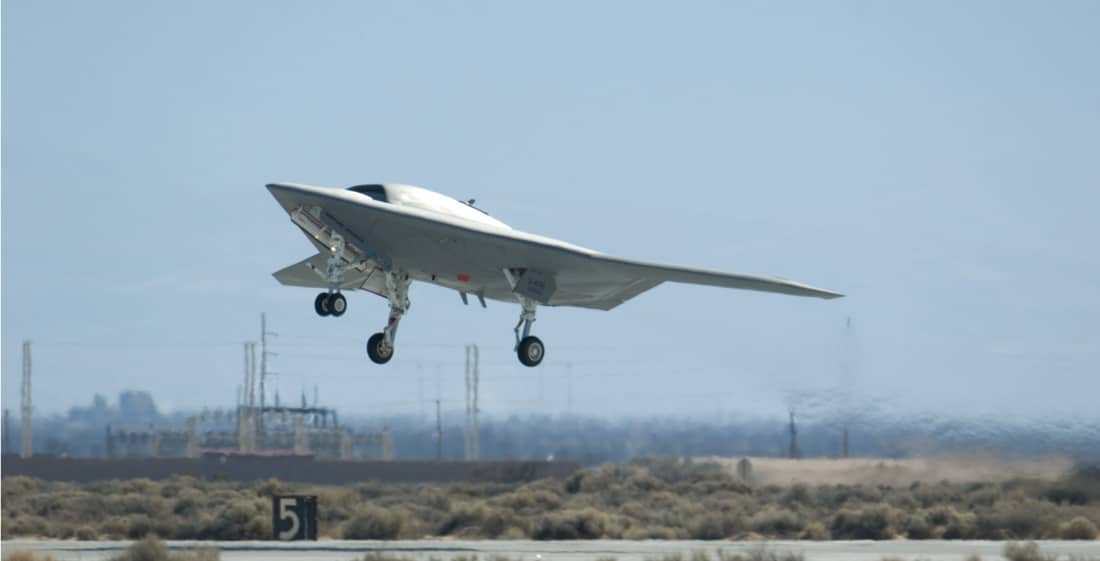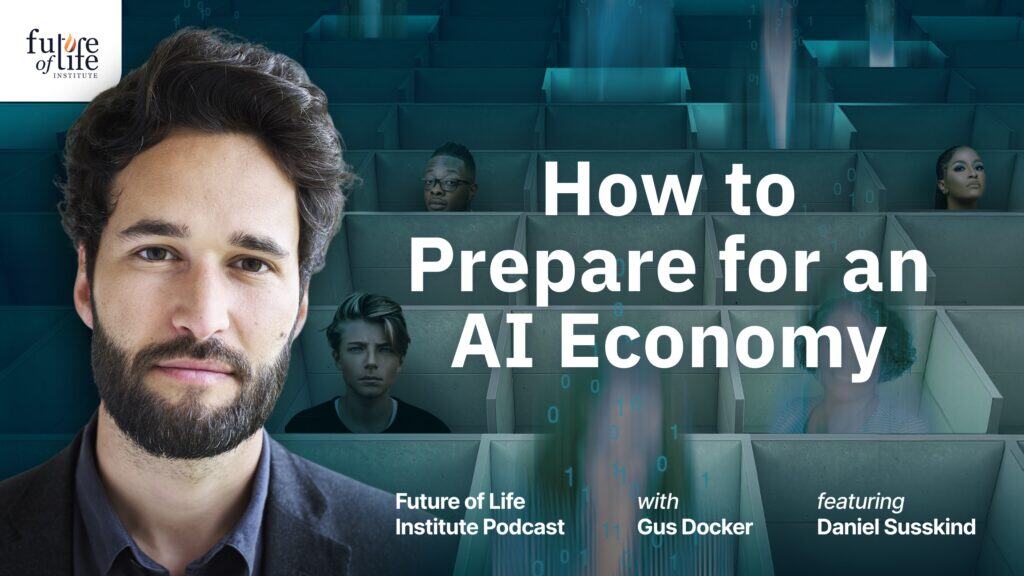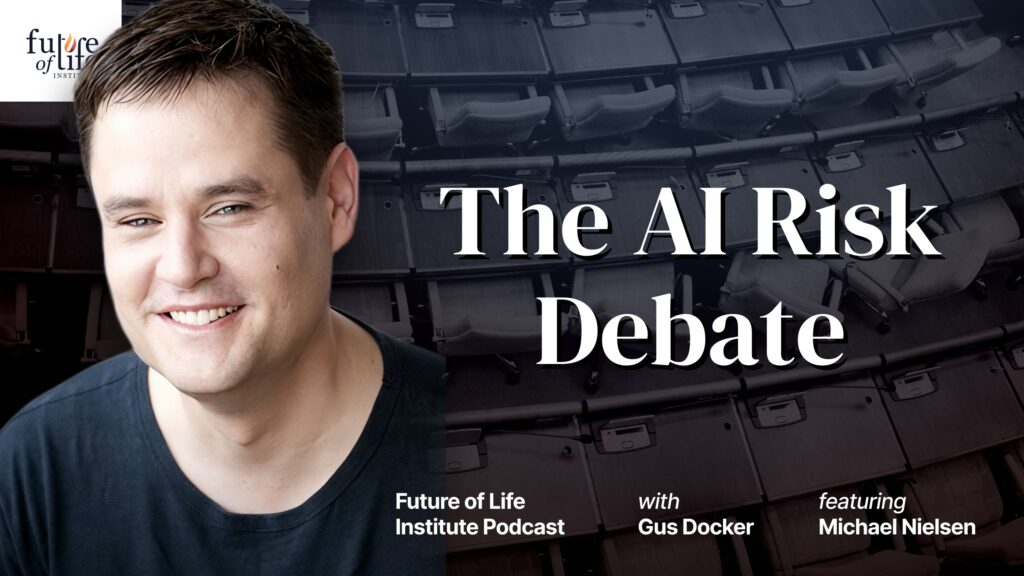AI and Robotics Researchers Boycott South Korea Tech Institute Over Development of AI Weapons Technology

Contents
UPDATE 4-9-18: The boycott against KAIST has ended. The press release for the ending of the boycott explained:
“More than 50 of the world’s leading artificial intelligence (AI) and robotics researchers from 30 different countries have declared they would end a boycott of the Korea Advanced Institute of Science and Technology (KAIST), South Korea’s top university, over the opening of an AI weapons lab in collaboration with Hanwha Systems, a major arms company.
“At the opening of the new laboratory, the Research Centre for the Convergence of National Defence and Artificial Intelligence, it was reported that KAIST was “joining the global competition to develop autonomous arms” by developing weapons “which would search for and eliminate targets without human control”. Further cause for concern was that KAIST’s industry partner, Hanwha Systems builds cluster munitions, despite an UN ban, as well as a fully autonomous weapon, the SGR-A1 Sentry Robot. In 2008, Norway excluded Hanwha from its $380 billion future fund on ethical grounds.
“KAIST’s President, Professor Sung-Chul Shin, responded to the boycott by affirming in a statement that ‘KAIST does not have any intention to engage in development of lethal autonomous weapons systems and killer robots.’ He went further by committing that ‘KAIST will not conduct any research activities counter to human dignity including autonomous weapons lacking meaningful human control.’
“Given this swift and clear commitment to the responsible use of artificial intelligence in the development of weapons, the 56 AI and robotics researchers who were signatories to the boycott have rescinded the action. They will once again visit and host researchers from KAIST, and collaborate on scientific projects.”
UPDATE 4-5-18: In response to the boycott, KAIST President Sung-Chul Shin released an official statement to the press. In it, he says:
“I would like to reaffirm that KAIST does not have any intention to engage in development of lethal autonomous weapons systems and killer robots. KAIST is significantly aware of ethical concerns in the application of all technologies including artificial intelligence.
“I would like to stress once again that this research center at KAIST, which was opened in collaboration with Hanwha Systems, does not intend to develop any lethal autonomous weapon systems and the research activities do not target individual attacks.”
ORIGINAL ARTICLE 4-4-18:
Leading artificial intelligence researchers from around the world are boycotting South Korea’s KAIST (Korea Advanced Institute of Science and Technology) after the institute announced a partnership with Hanwha Systems to create a center that will help develop technology for AI weapons systems.
The boycott, organized by AI researcher Toby Walsh, was announced just days before the start of the next United Nations Convention on Conventional Weapons (CCW) meeting in which countries will discuss how to address challenges posed by autonomous weapons.
“At a time when the United Nations is discussing how to contain the threat posed to international security by autonomous weapons, it is regrettable that a prestigious institution like KAIST looks to accelerate the arms race to develop such weapons,” the boycott letter states.
The letter also explains the concerns AI researchers have regarding autonomous weapons:
“If developed, autonomous weapons will be the third revolution in warfare. They will permit war to be fought faster and at a scale greater than ever before. They have the potential to be weapons of terror. Despots and terrorists could use them against innocent populations, removing any ethical restraints. This Pandora’s box will be hard to close if it is opened.”
The letter has been signed by over 50 of the world’s leading AI and robotics researchers from 30 countries, including professors Yoshua Bengio, Geoffrey Hinton, Stuart Russell, and Wolfram Burgard.
Explaining the boycott, the letter states:
“We therefore publicly declare that we will boycott all collaborations with any part of KAIST until such time as the President of KAIST provides assurances, which we have sought but not received, that the Center will not develop autonomous weapons lacking meaningful human control. We will, for example, not visit KAIST, host visitors from KAIST, or contribute to any research project involving KAIST.”
In February, the Korean Times reported on the opening of the Research Center for the Convergence of National Defense and Artificial Intelligence, which was formed as a partnership between KAIST and Hanwha to “ the global competition to develop autonomous arms.” The Korean Times article added that “researchers from the university and Hanwha will carry out various studies into how technologies of the Fourth Industrial Revolution can be utilized on future battlefields.”
In the press release for the boycott, Walsh referenced concerns that he and other AI researchers have had since 2015, when he and FLI released an open letter signed by thousands of researchers calling for a ban on autonomous weapons.
“Back in 2015, we warned of an arms race in autonomous weapons,” said Walsh. “That arms race has begun. We can see prototypes of autonomous weapons under development today by many nations including the US, China, Russia and the UK. We are locked into an arms race that no one wants to happen. KAIST’s actions will only accelerate this arms race.”
Many organizations and people have come together through the Campaign to Stop Killer Robots to advocate for a UN ban on lethal autonomous weapons. In her summary of the last United Nations CCW meeting in November, 2017, Ray Acheson of Reaching Critical Will wrote:
“It’s been four years since we first began to discuss the challenges associated with the development of autonomous weapon systems (AWS) at the United Nations. … But the consensus-based nature of the Convention on Certain Conventional Weapons (CCW) in which these talks have been held means that even though the vast majority of states are ready and willing to take some kind of action now, they cannot because a minority opposes it.”
Walsh adds, “I am hopeful that this boycott will add urgency to the discussions at the UN that start on Monday. It sends a clear message that the AI & Robotics community do not support the development of autonomous weapons.”
To learn more about autonomous weapons and efforts to ban them, visit the Campaign to Stop Killer Robots and autonomousweapons.org. The full open letter and signatories are below.
Open Letter:
As researchers and engineers working on artificial intelligence and robotics, we are greatly concerned by the opening of a “Research Center for the Convergence of National Defense and Artificial Intelligence” at KAIST in collaboration with Hanwha Systems, South Korea’s leading arms company. It has been reported that the goals of this Center are to “develop artificial intelligence (AI) technologies to be applied to military weapons, joining the global competition to develop autonomous arms.”
At a time when the United Nations is discussing how to contain the threat posed to international security by autonomous weapons, it is regrettable that a prestigious institution like KAIST looks to accelerate the arms race to develop such weapons. We therefore publicly declare that we will boycott all collaborations with any part of KAIST until such time as the President of KAIST provides assurances, which we have sought but not received, that the Center will not develop autonomous weapons lacking meaningful human control. We will, for example, not visit KAIST, host visitors from KAIST, or contribute to any research project involving KAIST.
If developed, autonomous weapons will be the third revolution in warfare. They will permit war to be fought faster and at a scale greater than ever before. They have the potential to be weapons of terror. Despots and terrorists could use them against innocent populations, removing any ethical restraints. This Pandora’s box will be hard to close if it is opened. As with other technologies banned in the past like blinding lasers, we can simply decide not to develop them. We urge KAIST to follow this path, and work instead on uses of AI to improve and not harm human lives.
FULL LIST OF SIGNATORIES TO THE BOYCOTT
Alphabetically by country, then by family name.
- Prof. Toby Walsh, USNW Sydney, Australia.
- Prof. Mary-Anne Williams, University of Technology Sydney, Australia.
- Prof. Thomas Either, TU Wein, Austria.
- Prof. Paolo Petta, Austrian Research Institute for Artificial Intelligence, Austria.
- Prof. Maurice Bruynooghe, Katholieke Universiteit Leuven, Belgium.
- Prof. Marco Dorigo, Université Libre de Bruxelles, Belgium.
- Prof. Luc De Raedt, Katholieke Universiteit Leuven, Belgium.
- Prof. Andre C. P. L. F. de Carvalho, University of São Paulo, Brazil.
- Prof. Yoshua Bengio, University of Montreal, & scientific director of MILA, co-founder of Element AI, Canada.
- Prof. Geoffrey Hinton, University of Toronto, Canada.
- Prof. Kevin Leyton-Brown, University of British Columbia, Canada.
- Prof. Csaba Szepesvari, University of Alberta, Canada.
- Prof. Zhi-Hua Zhou,Nanjing University, China.
- Prof. Thomas Bolander, Danmarks Tekniske Universitet, Denmark.
- Prof. Malik Ghallab, LAAS-CNRS, France.
- Prof. Marie-Christine Rousset, University of Grenoble Alpes, France.
- Prof. Wolfram Burgard, University of Freiburg, Germany.
- Prof. Bernd Neumann, University of Hamburg, Germany.
- Prof. Bernhard Schölkopf, Director, Max Planck Institute for Intelligent Systems, Germany.
- Prof. Manolis Koubarakis, National and Kapodistrian University of Athens, Greece.
- Prof. Grigorios Tsoumakas, Aristotle University of Thessaloniki, Greece.
- Prof. Benjamin W. Wah, Provost, The Chinese University of Hong Kong, Hong Kong.
- Prof. Dit-Yan Yeung, Hong Kong University of Science and Technology, Hong Kong.
- Prof. Kristinn R. Thórisson, Managing Director, Icelandic Institute for Intelligent Machines, Iceland.
- Prof. Barry Smyth, University College Dublin, Ireland.
- Prof. Diego Calvanese, Free University of Bozen-Bolzano, Italy.
- Prof. Nicola Guarino, Italian National Research Council (CNR), Trento, Italy.
- Prof. Bruno Siciliano, University of Naples, Italy.
- Prof. Paolo Traverso, Director of FBK, IRST, Italy.
- Prof. Yoshihiko Nakamura, University of Tokyo, Japan.
- Prof. Imad H. Elhajj, American University of Beirut, Lebanon.
- Prof. Christoph Benzmüller, Université du Luxembourg, Luxembourg.
- Prof. Miguel Gonzalez-Mendoza, Tecnológico de Monterrey, Mexico.
- Prof. Raúl Monroy, Tecnológico de Monterrey, Mexico.
- Prof. Krzysztof R. Apt, Center Mathematics and Computer Science (CWI), Amsterdam, the Netherlands.
- Prof. Angat van den Bosch, Radboud University, the Netherlands.
- Prof. Bernhard Pfahringer, University of Waikato, New Zealand.
- Prof. Helge Langseth, Norwegian University of Science and Technology, Norway.
- Prof. Zygmunt Vetulani, Adam Mickiewicz University in Poznań, Poland.
- Prof. José Alferes, Universidade Nova de Lisboa, Portugal.
- Prof. Luis Moniz Pereira, Universidade Nova de Lisboa, Portugal.
- Prof. Ivan Bratko, University of Ljubljana, Slovenia.
- Prof. Matjaz Gams, Jozef Stefan Institute and National Council for Science, Slovenia.
- Prof. Hector Geffner, Universitat Pompeu Fabra, Spain.
- Prof. Ramon Lopez de Mantaras, Director, Artificial Intelligence Research Institute, Spain.
- Prof. Alessandro Saffiotti, Orebro University, Sweden.
- Prof. Boi Faltings, EPFL, Switzerland.
- Prof. Jürgen Schmidhuber, Scientific Director, Swiss AI Lab, Universià della Svizzera italiana, Switzerland.
- Prof. Chao-Lin Liu, National Chengchi University, Taiwan.
- Prof. J. Mark Bishop, Goldsmiths, University of London, UK.
- Prof. Zoubin Ghahramani, University of Cambridge, UK.
- Prof. Noel Sharkey, University of Sheffield, UK.
- Prof. Luchy Suchman, Lancaster University, UK.
- Prof. Marie des Jardins, University of Maryland, USA.
- Prof. Benjamin Kuipers, University of Michigan, USA.
- Prof. Stuart Russell, University of California, Berkeley, USA.
- Prof. Bart Selman, Cornell University, USA.
About the Future of Life Institute
The Future of Life Institute (FLI) is a global think tank with a team of 20+ full-time staff operating across the US and Europe. FLI has been working to steer the development of transformative technologies towards benefitting life and away from extreme large-scale risks since its founding in 2014. Find out more about our mission or explore our work.
Related content
Other posts about AI, Recent News




